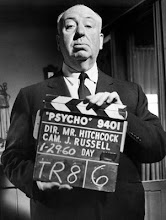The thriller genre can include the following sub-genres, which may include elements of other genres:
Action thriller: In which the work often features a race against the clock, contains lots of violence, and an obvious antagonist. These films usually contain large amounts of guns, explosions, and large elaborate set pieces for the action to take place. These films often have elements of mystery films and crime films but these elements take a backseat to action. Notable examples are the James Bond films, The Transporter, and the Jason Bourne novels and films.
Conspiracy thriller: In which the hero/heroine confronts a large, powerful group of enemies whose true extent only he/she recognizes. The Chancellor Manuscript and The Aquitane Progression by Robert Ludlum fall into this category, as do films such as Three Days of the Condor, Capricorn One, and JFK.
Crime thriller: This particular genre is a hybrid type of both crime films and thrillers that offers a suspenseful account of a successful or failed crime or crimes. These films often focus on the criminal(s) rather than a policeman. Crime thrillers usually emphasize action over psychological aspects. Central topics of these films include murders, robberies, chases, shootouts, and double-crosses are central ingredients. Some examples include The Killing, Seven, Reservoir Dogs, Inside Man, and The Asphalt Jungle.
Disaster thriller: In which the main conflict is due to some sort of natural or artificial disaster, such as floods, earthquakes, hurricanes, volcanoes, etc., or nuclear disasters as an artificial disaster. Examples include Stormy Weather by Carl Hiaasen, Tremor by Winston Graham, and the 1974 film Earthquake.
Drama thriller: In which the story consists of the elements of a thriller and drama film. These films are usually slower paced and involves a great deal of character development along with plot twists. Examples include The Illusionist, The Interpreter and The Prestige.
Science-fiction thriller: Alien and Kim Stanley Robinson's Mars Trilogy and Ian Irvine's Human Rites Trilogy and Dasavathaaram are examples of science-fiction thrilers.
Horror thriller: In which the main character is put in danger and their main enemies are unrealistic creatures in which they must destroy to achieve their goal. Films such as Evil Dead 2 and Zombi 2 fit into this genre of thriller.
Erotic thriller: In which it consists of erotica and thriller. It has become popular since the 1980s and the rise of VCR market penetration. The genre includes such films as Basic Instinct, Dressed to Kill, Color of Night, Eyes Wide Shut, Fatal Attraction, Looking for Mr. Goodbar, Obsessed, and In the Cut.
Legal thriller: In which the lawyer-heroes/heroines confront enemies outside, as well as inside, the courtroom and are in danger of losing not only their cases but their lives. The Innocent Man by John Grisham is a well known example of the type.
Medical thriller: In which the hero/heroine are medical doctors/personnel working to solve an expanding medical problem. Robin Cook, Tess Gerritsen, Michael Crichton, and Gary Braver are well-known authors of this subgenre. Nonfiction medical thrillers are also a subcategory, comprising works like The Hot Zone by Richard Preston. Films such as Awake are other examples of medical thrillers.
Political thriller: In which the hero/heroine must ensure the stability of the government that employs him. The success of Seven Days in May (1962) by Fletcher Knebel, The Day of the Jackal (1971) by Frederick Forsyth, and The Manchurian Candidate (1959) by Richard Condon established this subgenre. A more recent example is the 1980 film Agency.
Psychological thriller: In which (until the often violent resolution) the conflict between the main characters is mental and emotional, rather than physical. The Alfred Hitchcock films Suspicion, Shadow of a Doubt, and Strangers on a TrainDavid Lynch's bizarre and influential Blue Velvet are notable examples of the type, as is The Talented Mr. Ripley by Patricia Highsmith (who also wrote Strangers) and The Good Son starring Elijah Wood and Macaulay Culkin and Manichitrathazhu a malayalam film.
Spy thriller (also a subgenre of spy fiction): In which the hero is generally a government agent who must take violent action against agents of a rival government or (in recent years) terrorists. Examples include From Russia, with Love by Ian Fleming, The Bourne Identity by Robert Ludlum, and television series such as Mission: Impossible and 24 (the latter demonstrating a break from the norm by Robert Ludlum, as it is as much a psychological thriller as a spy thriller).
Techno-thriller: In which (typically military) technology is described in detail and made essential to the reader's/viewer's understanding of the plot. Tom Clancy defined and popularized the genre with his The Hunt for Red October, and is considered to be the "Father of the Techno thriller".
Religious thriller: In which the plot is closely connected to religious objects, institutions and questions. While suspense stories have always shown a significant affinity for religion and philosophical issues (G.K. Chesterton's novel The Man Who Was Thursday has been called a "metaphysical thriller"; and Umberto Eco's novels The Name of the Rose and Foucault's Pendulum both display thriller characteristics), Dan Brown's 2003 best-seller The Da Vinci Code has led to a current boom in religiously oriented thrillers.
Monday, 15 March 2010
Subscribe to:
Post Comments (Atom)

No comments:
Post a Comment